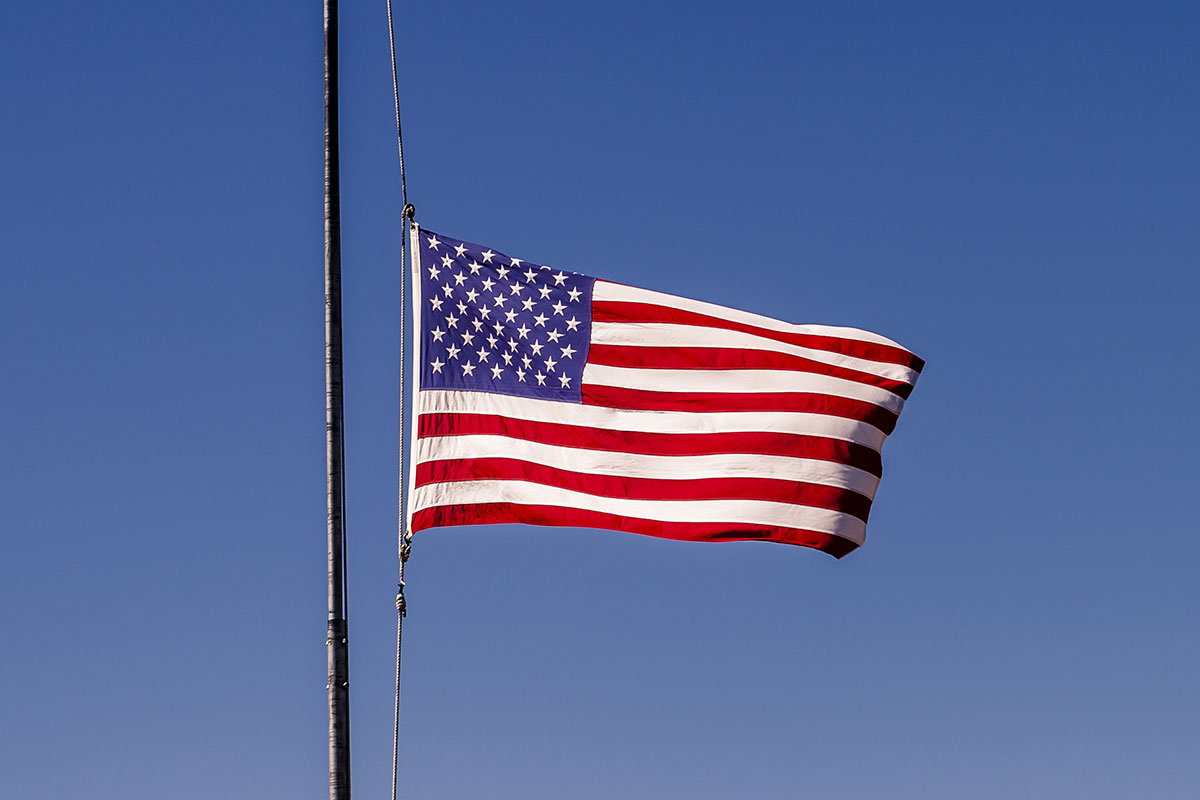How has the United States responded to the COVID pandemic?
It depends whether you’re talking about federal and state governments (and among the latter, which ones), in which case the answer is, for the most part, disastrously; or about the American people, who have typically responded with resourcefulness and courage.
That was the consensus among members of a recent panel discussion live-streamed on July 1 by the student-facilitated TC Adult Learning & Leadership Network.
COVID-19 Response Panel Discussion
Co-sponsored by the Teachers College Adult Learning & Leadership program and the Office of Graduate Student Life & Development, the event was organized and moderated by Adult Learning & Leadership doctoral student Brian Ahn.
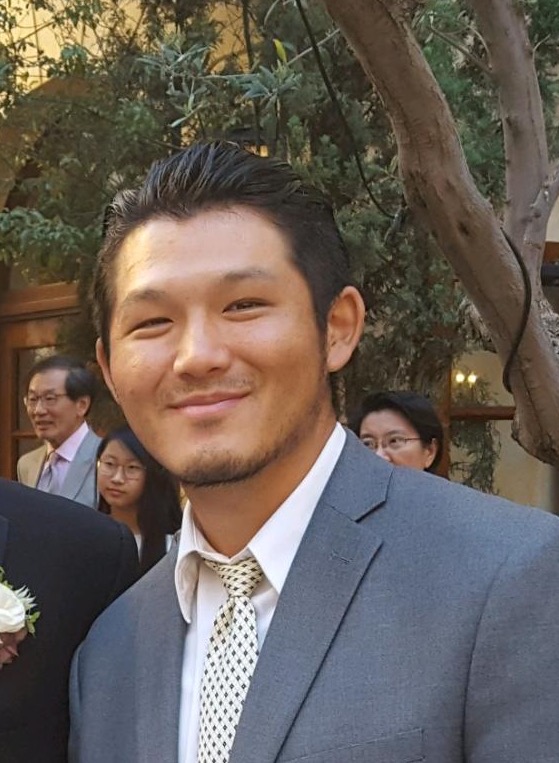
Brian Ahn: Adult Learning & Leadership doctoral student; Co-Founder, The Semita Foundation (Photo: TC Archives)
The pandemic has “shed light on the weakening of our democratic institutions, our democratic practices and the hypocrisy of some of our lofty goals,” said Victoria Marsick, Professor of Adult & Learning and Leadership and Co-Director of TC’s J.M. Huber Institute, who joined with other panelists in pointing to systemic failure at every level of government. “COVID-19 made glaringly apparent the need for critical thinking, digital literacies and civic engagement.”
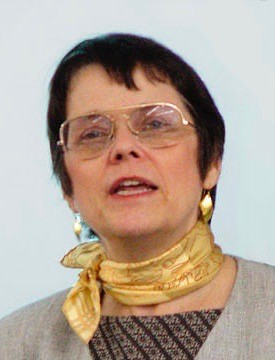
Victoria Marsick, Professor of Adult Learning & Leadership (Photo: TC Archives)
Josh DeVincenzo, also a doctoral candidate in Adult Learning & Leadership, described the past year as one roiled by an unchecked health crisis, the deaths of unarmed African Americans at the hands of police and a bitter political divide that will almost surely extend into 2021 and beyond.
The pandemic has “shed light on the weakening of our democratic institutions, our democratic practices and the hypocrisy of some of our lofty goals,” and “made glaringly apparent the need for critical thinking, digital literacies and civic engagement.”
— Victoria Marsick
“We're going to be navigating this terrain for quite a while,” predicted DeVincenzo, who also serves as an Instructional Designer with the Columbia University Earth Institute’s National Center for Disaster Preparedness. He underscored the need to “look at civic education, particularly at the local level. We need congruent leadership, agreement and consistent messages because what we’re seeing now are different interpretations.”
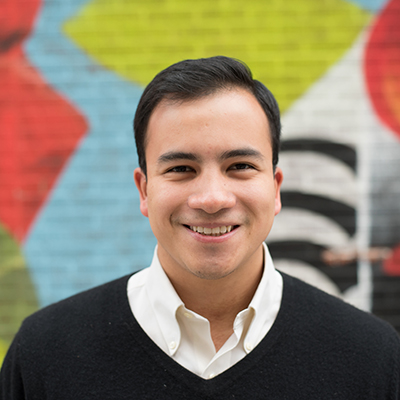
Josh DeVincenzo, Adult Learning & Leadership doctoral student; Project Coordinator/Instructional Designer at the National Center for Disaster Preparedness (Photo: TC Archives)
Hoi-Ming So, Associate Director of Operations for TC’s Office of Public Safety, concurred, citing the on again/off again government directives on the advisability of protective face masks.
“The CDC [U.S. Centers for Disease Control & Prevention] kept switching back and forth,” So said. “Should we wear masks? Shouldn’t we wear masks? And with the city and state governments also going back and forth it was left to us, as professionals, to figure out what was best.”
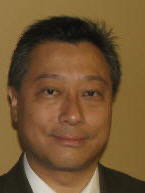
Hoi-Ming So, Associate Director of Operations, Office of Public Safety (Photo: TC Archives)
“There is a way to fix this problem,” So continued. “And that is to stop the politics and start caring about community.”
We're going to be navigating this terrain for quite a while. We need congruent leadership, agreement and consistent messages because what we’re seeing now are different interpretations.
— Josh DeVincenzo
Other speakers stressed that it was the community that has often fashioned the best responses. Columbia University’s Kaaryn Nailor Simmons, Director of the Columbia-Harlem Small Business Development Center, said that employer-employee relationships that had been forged “before the world changed” served as pillars of mutual support when the pandemic caused many mom and pop businesses to shut their doors or curtail operating hours.
Simmons recounted how some business owners dipped into savings to pay workers during the chaotic months of March and April, while others ensured that fresh fruit, vegetables and other food items made their way to the tables of employees and their families. These responses could not totally cushion against the impact of the pandemic, but they certainly eased some of the devastation.
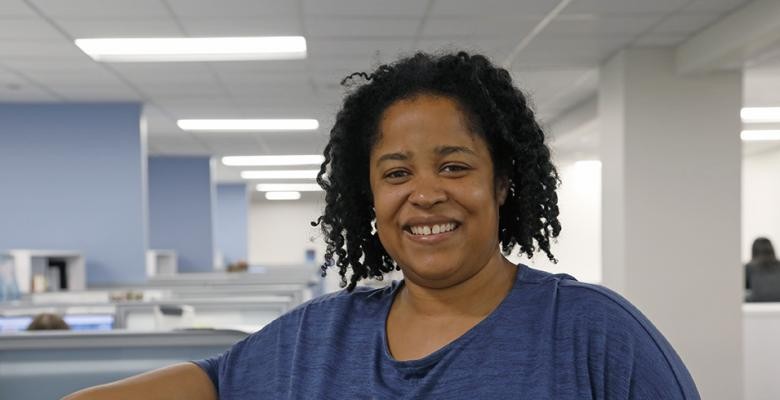
Kaaryn Nailor Simmons, Director, Columbia-Harlem Small Business Development Center (Photo: John Pinderhughes)
“It was never just a question of what to do during an emergency,” Simmons said. “It is a question of what you do during the emergency so your business still exists and is resilient after the emergency.” Now those efforts are paying off, “because it is time to get back to work.”
U.S. Army Major and TC Adult Learning & Leadership doctoral candidate Jamie Hickman said that COVID-19 prompted many personnel to work remotely and caused the restructuring of group training regimens at military installations here and abroad. What didn’t change, she said, was the “strategic readiness to provide resources in a timely manner in conjunction with other organizations and partners to provide resources during a challenging time.”
“It was never just a question of what to do during an emergency. It is a question of what you do during the emergency so your business still exists and is resilient after the emergency.” Now those efforts are paying off, “because it is time to get back to work.”
— Kaaryn Nailor Simmons
One benefit, for New Yorkers, was military oversight of the Jacob Javits Center when it was temporarily pressed into service as a field hospital.
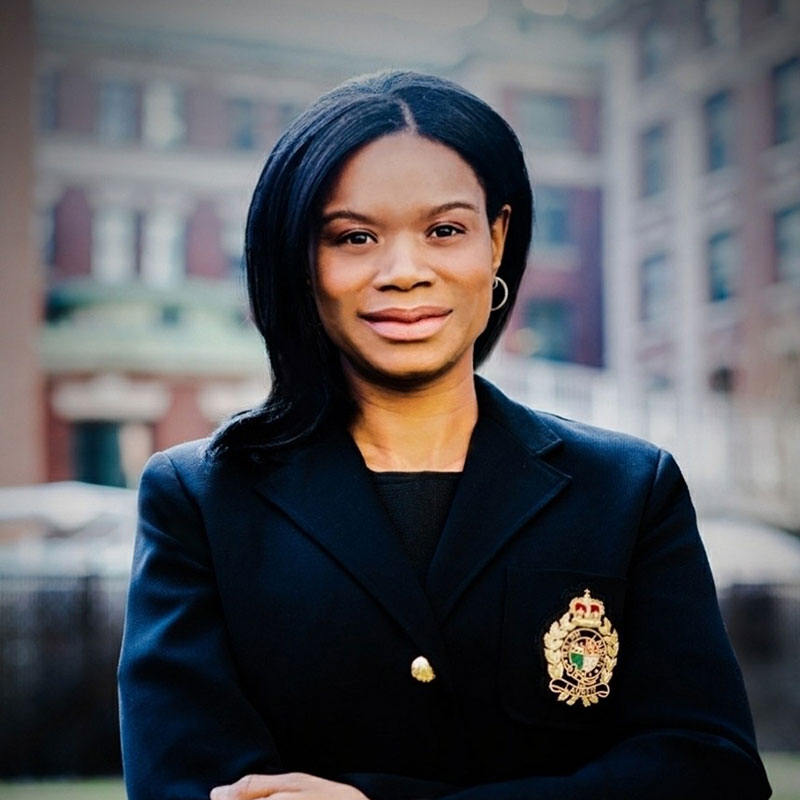
US Army Major Jamie Hickman, Adult Learning & Leadership doctoral student (Photo: TC Archives)
Hickman, a former West Point instructor, previously earned an M.Ed. in Organization & Leadership from TC. Recovered from a diagnosis of COVID-19 in March, she said she has learned to prioritize health, family and “taking care of others.”
Marsick expressed hope that a similar sense of community will accompany the slow American recovery from the trauma that so far has defined 2020. The nation needs to focus on “doing things differently and thinking differently. It starts with mindsets but also involves skill sets and equity, a rethinking. Education is important. But policies and structures are what will change things.”
To set those changes in motion, Marsick suggested, Americans at all levels need to adopt the civility exemplified by the members of the TC panel discussion and drop the political rhetoric.
It is an opportune moment, she advised, “to understand different perspectives and find ways to think together about how different communities can get through this together.”
— Steve Giegerich
Promoting Civic, as Well as Cultural, Exchange
Brian Ahn, the organizer and moderator of TC’s Response to COVID panel, is a former Peace Corps volunteer and co-founder of the Semita Foundation, a California-based non-profit that promotes community service and global understanding initiatives on behalf of young people in the U.S., Asia and Europe.
What we're learning is that one size doesn't fit all. There are different approaches to resolving this crisis. But we do know that it will take all of us coming together in a time such as this.”
— Major Jamie Hickman
Ahn says he organized the recent panel as a way of representing an array of response agencies that have dealt with the "unprecedented" impact of the pandemic on TC, the Columbia community and New York City as a whole.
“What we're learning is that one size doesn't fit all,” says Major Jamie Hickman. “There are different approaches to resolving this crisis. But we do know that it will take all of us coming together in a time such as this.”
